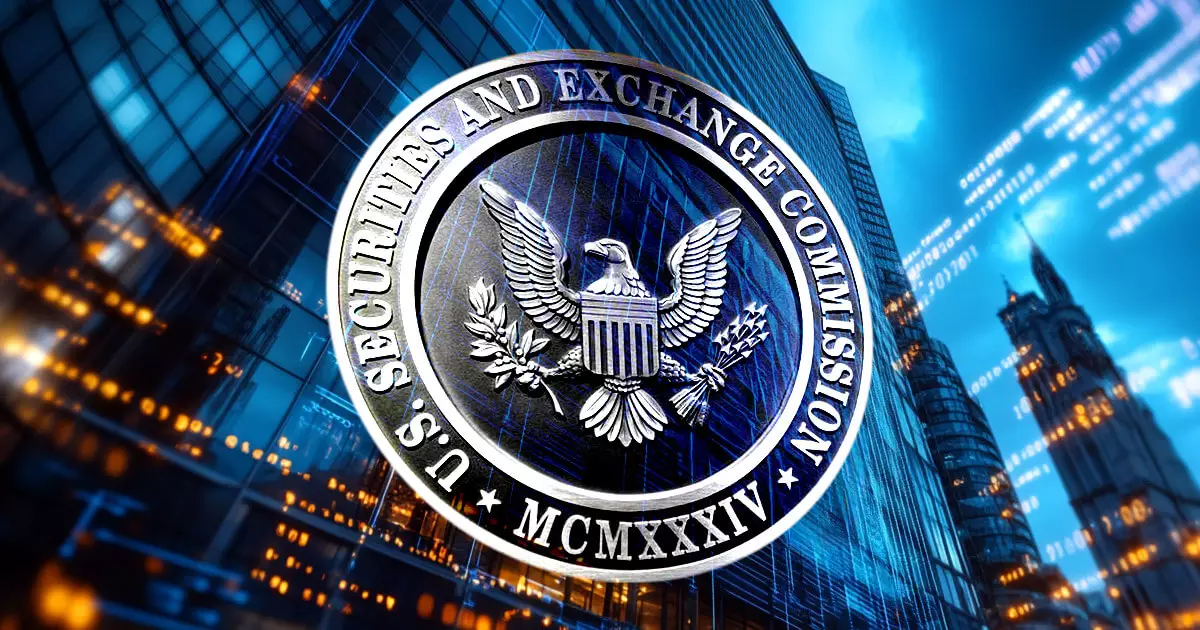The rapidly evolving landscape of technology has necessitated a significant reevaluation of regulatory frameworks by institutions such as the United States Securities and Exchange Commission (SEC). Digital assets, particularly those related to cryptocurrencies and blockchain technology, have presented unique challenges and opportunities for financial regulation. In a notable move that reflects an ongoing transformation in approach, the SEC has announced the establishment of the Cyber and Emerging Technologies Unit (CETU). This new unit is set to replace the previous Crypto Assets and Cyber Unit, signaling a broader initiative to enhance oversight in the digital asset space while addressing complex cyber-enabled financial crimes.
Formally unveiled on February 20, the CETU aims to broaden the SEC’s regulatory focus beyond cryptocurrencies to include a range of emerging technologies. With a particular emphasis on artificial intelligence (AI) fraud, the dark web, and social media manipulation, the CETU’s objectives are extensive. It aims to combat manipulation tactics that exploit technological vulnerabilities, thereby protecting investors and maintaining market integrity. Moreover, the formation of CETU anticipates potential threats associated with technological advancements, including cybersecurity compliance issues and the sophisticated hacking of confidential information.
At the helm of CETU is Laura D’Allaird, previously the deputy director of the SEC’s Division of Enforcement. Leading a team of 30 legal professionals and fraud experts distributed across nine regional offices, D’Allaird’s experience positions CETU to effectively address the emerging challenges within the financial landscape. This consolidation of expertise in fintech and compliance fosters collaboration and a strategic approach to enforcement.
Acting SEC Chair Mark Uyeda has asserted that CETU will closely work with Commissioner Hester Peirce’s Crypto Task Force. This partnership is designed to strike a balance between rigorous enforcement and the need for fostering innovation within the digital asset market. Uyeda’s declaration emphasizes that the unit will prioritize investor protection while simultaneously facilitating capital formation and market efficiency. This dual focus—aimed at both safeguarding the financial system and promoting healthy innovation—reflects a forward-thinking regulatory philosophy.
This strategic pivot comes in the context of broader reforms initiated during the Trump administration. These reforms included rescinding burdensome accounting guidelines and clarifying crypto asset classifications, aligning regulatory approaches with an inclination to support technological advancement. Furthermore, President Trump’s executive order has called for enhanced interagency coordination, driving a unified stance on the U.S.’s commitment to bolstering blockchain innovation against growing foreign competition.
The establishment of the CETU marks a significant shift in regulatory focus that could have lasting implications for the digital asset marketplace. With its specific mandate targeting AI-driven fraud and other advanced forms of cyber manipulation, the SEC recognizes that the risks associated with new technologies must be addressed proactively. This approach could lead to increased institutional investor participation in the digital assets space, as a more stable regulatory environment reduces uncertainty, thereby encouraging long-term investment.
Notably, the delineation of CETU’s scope raises questions about the SEC’s approach to cryptocurrency as a whole. While it hints at scrutiny regarding acts of fraud in the use of blockchain technology and digital assets, it stops short of categorizing all cryptocurrencies as unregistered securities—an area that has generated much controversy under former Chair Gary Gensler’s leadership. This nuanced shift could very well pave the way for a more innovative era in financial technology within the framework of careful and considered regulation.
As we navigate the growing complexities of digital finance and technology, the SEC’s CETU signifies a pivotal moment in regulatory practices. By embracing technological advancements while maintaining a commitment to security and investor protection, the Commission aims to adapt to the rapidly changing landscape. The hope is that this strategic realignment will not only mitigate risks but also enhance the United States’ position as a leader in digital innovation. Ultimately, as the CETU embarks on its mission, the eyes of the financial world will be keenly watching its impact on both the regulatory environment and the future of blockchain technologies.















Leave a Reply